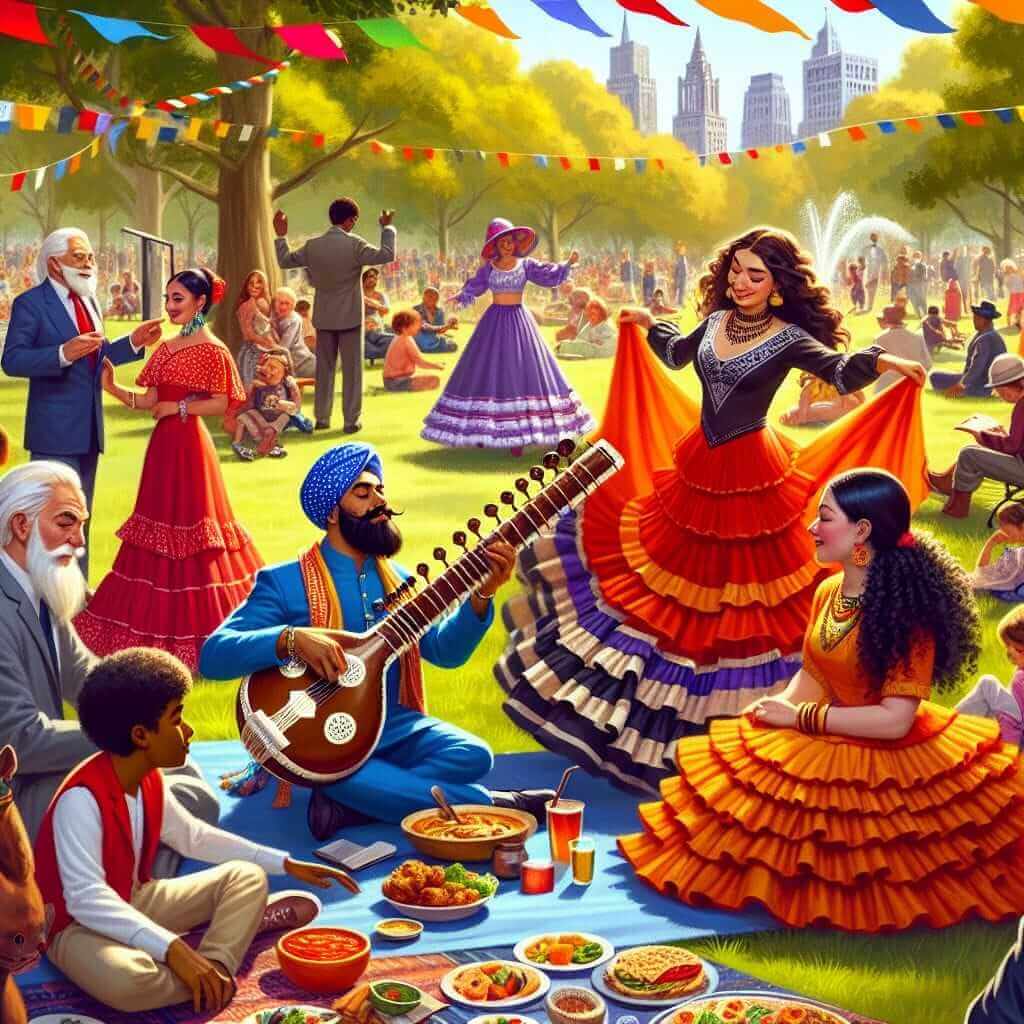In the realm of international relations, the significance of cultural diplomacy is undeniable. It serves as a vital tool for fostering mutual understanding, building trust, and strengthening ties between nations. This article will delve into the multifaceted role of cultural diplomacy in shaping international relations, providing insights into its impact and importance.
To illustrate its relevance in the IELTS Writing Task 2, let’s consider some potential essay prompts:
- Some people believe that cultural diplomacy is the most effective way to promote peace and understanding between nations. To what extent do you agree or disagree?
- In an increasingly globalized world, cultural exchange programs play a pivotal role in fostering international cooperation. Discuss the benefits and challenges of such programs.
- Governments should invest more in cultural diplomacy initiatives to enhance their relations with other countries. Do you agree or disagree?
Sample Essay: Cultural Diplomacy – A Bridge to Global Harmony
Question: Some people believe that cultural diplomacy is the most effective way to promote peace and understanding between nations. To what extent do you agree or disagree?
Essay Analysis
This essay question requires you to present a balanced argument, acknowledging both the strengths and limitations of cultural diplomacy as a tool for promoting peace. It’s crucial to provide relevant examples and evidence to support your viewpoints.
Model Essay (Word Count: 286)
Cultural diplomacy, the use of cultural exchange to foster understanding between nations, is often touted as a powerful instrument for peacebuilding. While it certainly plays a significant role, it would be an overstatement to claim it as the most effective method.
Undoubtedly, cultural diplomacy can bridge divides and promote empathy. By showcasing a nation’s art, music, and traditions, stereotypes can be challenged, and common ground can be found. For instance, the exchange of musicians and artists between the United States and the Soviet Union during the Cold War helped to thaw relations and reduce tensions.
However, cultural diplomacy alone cannot resolve deep-seated political or economic conflicts. The success of such initiatives relies heavily on the willingness of governments to engage in good faith and address underlying issues. Moreover, cultural exchange programs can sometimes be perceived as propaganda tools, particularly if they are not implemented sensitively and respectfully.
Ultimately, a multifaceted approach is needed to achieve lasting peace. Diplomatic negotiations, economic cooperation, and addressing historical injustices are equally crucial. Cultural diplomacy can complement these efforts by creating an environment of trust and mutual respect, but it cannot single-handedly guarantee peace.
In conclusion, while cultural diplomacy is a valuable tool for promoting understanding and fostering positive international relations, it is not a panacea for global peace. A combination of approaches is essential to address the complex challenges that threaten world peace.
 Cultural Diplomacy
Cultural Diplomacy
Writing Notes
- Vocabulary: Use a range of vocabulary related to diplomacy, culture, and international relations. Avoid repetition by using synonyms and paraphrasing.
- Grammar: Pay attention to subject-verb agreement, article usage, and tense consistency. Use a variety of sentence structures to enhance flow and readability.
- Structure: Follow a clear essay structure with an introduction, body paragraphs, and a conclusion. Use cohesive devices to link your ideas logically.
Vocabulary
- Diplomacy (noun) /dɪˈploʊməsi/ – the profession, activity, or skill of managing international relations, typically by a country’s representatives abroad.
- Fostering (verb) /ˈfɒstərɪŋ/ – encouraging or promoting the development or growth of something.
- Empathy (noun) /ˈempəθi/ – the ability to understand and share the feelings of another.
- Stereotypes (noun) /ˈstɛriːətaɪps/ – widely held but fixed and oversimplified images or ideas of a particular type of person or thing.
- Propaganda (noun) /ˌprɒpəˈɡændə/ – information, especially of a biased or misleading nature, used to promote or publicize a particular political cause or point of view.
- Panacea (noun) /ˌpænəˈsiːə/ – a solution or remedy for all difficulties or diseases.
- Multifaceted (adjective) /ˌmʌltiˈfæsɪtɪd/ – having many different aspects or features.
- Thaw (verb) /θɔː/ – (of relations between people, countries, etc.) become less strained or unfriendly.
- Deep-seated (adjective) /ˌdiːpˈsiːtɪd/ – firmly established at a deep or profound level.
- Sensitively (adverb) /ˈsensɪtɪvli/ – in a way that shows awareness and understanding of other people’s feelings.
Conclusion
Cultural diplomacy plays a crucial role in shaping international relations by promoting understanding, building trust, and fostering collaboration between nations. Aspiring IELTS candidates should familiarize themselves with this topic and practice writing essays that present well-structured arguments supported by relevant examples and vocabulary. Remember, effective communication is key to achieving a high band score in the IELTS Writing Task 2.


